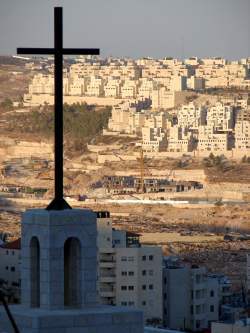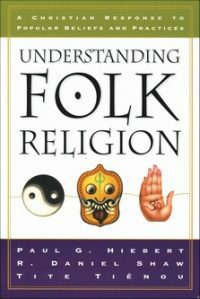Today is the day – English Class Event!

Yes, today is the big day of the English class Christmas event in Jesús María! Thanks for your prayers!

Yes, today is the big day of the English class Christmas event in Jesús María! Thanks for your prayers!
But you, O Bethlehem Ephrathah, who are too little to be among the clans of Judah, from you shall come forth for me one who is to be ruler in Israel, whose coming forth is from of old, from ancient days.
(Mic 5:2)
Of all the many prophecies of the Old Testament, this is probably one of the most familiar. So familiar, that we may miss some of the fascinating surprises hidden in it. So let’s take a look…
Micah was a contemporary of Isaiah, writing about 700 years before Christ. He prophesies against Samaria and Judah for their unfaithfulness to God and social injustice. He predicts destruction and captivity. He also predicts ultimate deliverance, including of course the coming of the Messiah.
At the point of the above prophecy, Micah is comparing the horrible judgement coming on Israel with its coming salvation.
What is Bethlehem Ephrathah? Well, there were two Bethlehems – Ephrathah, an older name for the area, is used to differentiate. When Matthew talks about this verse in Matthew 2:6, he instead says,"in the land of Judah". He’s probably just updating the term so his current hearers would again understand which Bethlehem he was referring to.
We’re going to see Matthew make more than one change to the verse – we’ll talk about those as we go along. This one is pretty easy to understand.
What about this Bethlehem? Well, it’s small and insignificant. King David’s line of course had been scattered everywhere, and was going to be more scattered with the captivity. It’s incredibly unlikely, humanly speaking, that another great King in David’s line would come from Bethlehem.
Much of the difference in wording probably simply comes from the translation of the Old Testament that Matthew was using. And another note – Matthew is actually quoting from the chief priests and scribes, so was it them, a translation, or Matthew who made the changes? It’s not clear.
 Looking out over modern Bethlehem |
But at this point there’s a surprising twist – he (at least, this is as it’s written) completely changes the meaning of the next line, saying are by no means least among the rulers of Judah.
So is it the least, or isn’t it?
First, the change from clans to rulers may simply be a different way of saying the same thing.
But the key is in the next phrase, where Matthew says for from you shall come a ruler.
So Matthew is parallelling the rulers of Judah with the Great Ruler who was to come (same word). And he’s not contradicting Micah in meaning – for though Bethlehem was small and insignificant, it became significant through the birth of the Messiah. It’s a contrast – now that the prophecy was fulfilled, Bethlehem would be famous! And it is, isn’t it?
In Micah, we see the amazing statement whose going forth is from old, from ancient days. Of course, the Messiah, being divine, was ancient even in the time of Micah. He’s the Alpha and Omega (Rev 22:13-16), the Word who was God from the beginning (John 1:1).
But Matthew leaves out this final phrase, and apparently borrows from later in Micah chapter 5. Verse 4 says:
And he shall stand and shepherd his flock in the strength of the LORD, in the majesty of the name of the LORD his God. And they shall dwell secure, for now he shall be great to the ends of the earth.
(Mic 5:4)
Matthew writes: for from you shall come a ruler who will shepherd my people Israel.
As with many prophecies we’ve looked at, Micah looks not only at the first coming of the Messiah but looks ahead to the second. What is begun at the first is completed at the second.
Jesus claimed to be the Good Shepherd (John 10:11-30). He would actually lay down His life for His sheep. Interestingly enough, at the same time Jesus declared His unity with the Father – and the Jews picked up stones to stone Him. Were they not familiar with Micah 5?
Of course Matthew points out that the Jews did know Micah 5 (see also John 7:40-43). The Targum of the Minor Prophets also clearly points to this passage as referring to the Messiah, as does Jewish literature even after the time of Christ.
We will talk more about the Shepherd who laid down His life for the sheep later. For now, let’s remember His birth in Bethlehem – the little town that was insignificant, but now has become the opposite – one of the world’s most famous. In 1867, Phillip Brooks wrote the now familiar words:
It was obviously a significant day for Jesus. Was this the day that Gabriel spoke of to Daniel so many years ago, when the Messiah would come as Prince to Jerusalem?
He had come – in the midst of a shouting, worshipping crowd. He road a young donkey, and the whole city was talking – who is this?
Don’t you know? It’s the prophet Jesus, from Nazareth in Galilee!
Jesus proceeded to the temple. He threw out those who were buying and selling, accusing them of turning the house of prayer into a robber’s den.
Then people began to bring the blind and lame to Him, and he healed them.
Was this the King coming to claim His kingdom? If so, there was a problem – the "keepers of the kingdom" started to confront Him.
The religious leaders, who should have been the first to recognize and accept the Messiah, began to confront Him, question Him, oppose Him. Jesus confronted them full strength – accusing them of rejecting God’s messenger, just as Israel had always done in the past, by killing and rejecting God’s prophets.
He taught them. He warned them. He finally silenced them, as you may remember, by talking about Psalm 110.
Then he proceeded to warn His disciples about the hypocrisy of the religious leaders of the day. And finally, He warned of the judgement that would be upon them:
O Jerusalem, Jerusalem, the city that kills the prophets and stones those who are sent to it! How often would I have gathered your children together as a hen gathers her brood under her wings, and you would not! See, your house is left to you desolate. For I tell you, you will not see me again, until you say, ‘Blessed is he who comes in the name of the Lord.’
(Mat 23:37-39)
It was an important day for Jerusalem, and her leaders. But they hadn’t recognized it. Instead of leading their people to the Messiah’s feet, they had tried to hinder them. Now, as was predicted by the prophet Daniel, destruction was coming. And the next time the Messiah came, it would be very different.
Then Jesus began to tell His disciples about the future, what was to come. Appropriate for this, a turning point in history, as it had been in Daniel’s day, at the end of the captivity.
But we’re talking about promises of a Messiah – what was the promise? For this we need to go back five and a half centuries, soon after the death of Daniel. The Jews had arrived back in Jerusalem, and another prophet was bringing news of the coming anointed Prince.
Zechariah’s message from God in chapter 9 concerned first the nations around Israel – many of whom currently threatened Israel. God was going to bring a new era to Jerusalem – He would protect her from her enemies. He would save Israel and make her a blessing (Zech 8:13).
And who would rule in this new era?
Rejoice greatly, O daughter of Zion! Shout aloud, O daughter of Jerusalem! Behold, your king is coming to you; righteous and having salvation is he, humble and mounted on a donkey, on a colt, the foal of a donkey.
I will cut off the chariot from Ephraim and the war horse from Jerusalem; and the battle bow shall be cut off, and he shall speak peace to the nations; his rule shall be from sea to sea, and from the River to the ends of the earth.
(Zec 9:9-10)

Once again, the prophecy looks at what began at Jesus’ first coming and what would continue until final fulfilment. He did bring salvation – and His rule will never end. The best is yet to come.
The ancient Jews sometimes recognized this paradox of the two comings of Christ. In the Babylonian Talmud, the idea was that He would come in one manner or another depending on the people:
it is written, And behold, one like the son of man coming with the clouds of heaven (Dan 7:13); whilst [elsewhere] it is written, [behold, thy king cometh unto thee…] lowly and riding upon an ass! (Zech 9:7) — If they are meritorious, [he will come] with the clouds of heaven (Dan 7:13); if not, lowly and riding upon an ass (Zech 9:9).
Rabbi Hersh Goldwurm wrote something similar on the commentary of Daniel.
But what if the Messiah was to come twice? Jesus Himself spoke of this one that day of His entry into Jerusalem. This was only part 1.
Finally, in the day that is coming, the Lord will punish the leaders that did not properly shepherd His people (Zech 10:3). He will come in power and save His people (Zech 9:14-17). That which began at His first coming will be completed at His second.
On that day the LORD their God will save them, as the flock of his people; for like the jewels of a crown they shall shine on his land. (Zec 9:16)
 Book on the topic recommended by Worldview Resource Group |
Hi everyone!
I’m heading off this morning (like, right NOW) to take a course (auditing) at the Seminario BÃblico de Puebla on Animism and Folk Religion. It’s part of a Masters level series offered by the Worldview Resource Group (USA) in conjunction with Recursos Estratégicos Globales (Argentina). These people have a passion to help disciple-makers from all over the world who are going all over the world.
Folk religion and animism, of course, deals with the disconnect between "official" religious beliefs and what is actually believed "on the ground". This is a huge issue in Mexico, as it is in the Muslim world, and really just about everywhere.
Hopefully I can speak more intelligently when the course is done. 😉 It runs from morning until evening Monday to Thursday, so I’d appreciate your prayers as I try to endure the long days (I’m usually doing well if I can handle a two hour meeting!). 😉 And also we’d appreciate your prayers for Shari and the kids as they have a hectic schedule without me there.
Most in Mexico are in the midst of celebrating the Days of the Dead. These celebrations are big business. One of the things you see a lot of is orange marigolds, which are used in the offerings for the dead. This was the flower the Aztecs used as well to remember the dead. It’s not uncommon to see many stalks of sugar cane (also offered to the dead) and piles of orange marigolds for sale, or piled onto trucks.
Offerings are made to dead children on the 1st, and dead adults on the second (of November).

Last time we were talking about the sign that was given to King Ahaz – that a virgin would conceive and have a son – Immanuel. We talked about how this is actually a part of a bigger picture that Isaiah is giving us, which is why we’re talking about prophecies from Isaiah 7, 9 and 11.
As we head into chapter 9, we see that the Messiah would appear in the land by the sea of Galilee, which is just where Jesus grew up and had His early ministry (Mat 4:12-17).
Then Isaiah continues with a sparkling jewel of a promise, one of the most famous in all Scripture:
For to us a child is born, to us a son is given; and the government shall be upon his shoulder, and his name shall be called Wonderful Counselor, Mighty God, Everlasting Father, Prince of Peace.
 |
Of the increase of his government and of peace there will be no end, on the throne of David and over his kingdom, to establish it and to uphold it with justice and with righteousness from this time forth and forevermore.
The zeal of the LORD of hosts will do this.
(Isa 9:6-7)
The ancient Jewish rabbis believed this passage to be speaking of the Messiah. In his book Behold Your King, William Webster includes these quotes, the first from the Targum of Isaiah (the targums are ancient translations or paraphrases):
The prophet saith to the house of David, A child has been born to us, a son has been given to us; and he has taken the law upon himself to keep it, and his name has been called from of old, Wonderful counsellor, Mighty God, He who lives forever, the Anointed one (or Messiah), in whose days peace shall increase upon us.
And this one from the Midrash Rabbah, Deuteronomy (rabbinic commentaries on Deuteronomy):
Another explanation: He said to him: ‘I have yet to raise up the Messiah,’ of whom it is written, For a child is born to us (Isa. IX,5)
Let’s look at this jewel one sparkle at a time.
For to us a child is born, to us a son is given; and the government shall be upon his shoulder… The Messiah would be human. The expression here about the government refers to the governing authority that the Messiah would have over Israel.
and his name shall be called Wonderful Counselor… The Messiah would speak with wise authority – surely a good description of Jesus!
Mighty God… Another link with the term Immanuel that we heard in Isa 7:14. The term Mighty God is used of the True God in Jer 32:17-20: "It is you who have made the heavens and the earth by your great power and by your outstretched arm! Nothing is too hard for you."
Everlasting Father… This is not talking about Jesus as Father God – Jesus is the Son, not the Father (the context confirms this of course). The Hebrew literally means Father of Eternity. The idea then is that Jesus is the author of eternity – in other words, the Creator of all things (Joh 1:1-3).
Prince of Peace… This term may at first seem strange when you remember Jesus’ words,"I have not come to bring peace, but a sword." (Mat 10:34). But the key may be in the coupling of the two words – Prince of Peace.
Peace was an ongoing theme for Isaiah, and for the writers of the New Testament as well. Peace is something that goes together with righteousness. When the world is as it should be – under the rule of a righteous God – that is when there is peace. More than once the Lord points out "there is no peace for the wicked" (Isa 48:22; Isa 57:21). Yet in following God there is peace, and ultimately there will come a time of great peace when all the earth will accept God on His throne.
Jesus came to bring division between those of the kingdom and those who fought it. And yet to His disciples, to those who accepted His leadership, His message was constantly one of peace. Maybe He summarized it best in John 16:33: I have said these things to you, that in me you may have peace. In the world you will have tribulation. But take heart; I have overcome the world.
The Prince of Peace will ultimately overcome a world of hate and bring perfect peace. Here we see the prophet not only looking ahead to Jesus’ first coming, but His second coming.
Of the increase of his government and of peace there will be no end… As we were just talking about.
on the throne of David and over his kingdom… He is the heir of David.
to establish it and to uphold it with justice and with righteousness from this time forth and forevermore… His kingdom will be everlasting.
The zeal of the LORD of hosts will do this. This is not a questionable prophecy – it will happen. God keeps His promises.
And we’ll finish this incredible look forward as we finish with Isaiah 11 next week, and then on to other promises of a Messiah!